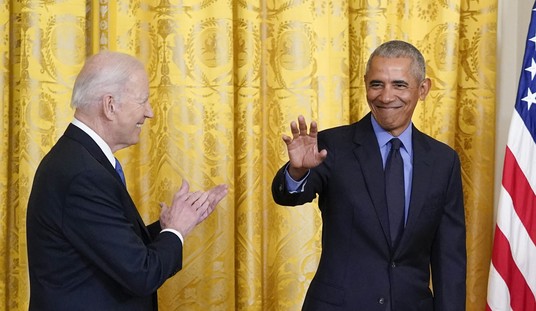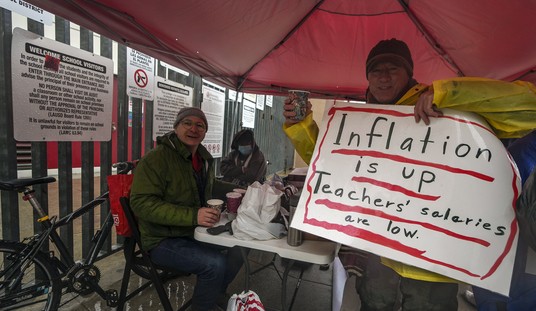In January, 2016 the Supreme Court will hear oral argument in nine cases. Without further ado, the following is a summary of these cases:
Friedrichs vs. California Teachers Association: This, like Evenwell and Fisher in December, have liberals in a certified state of panic. Freidrichs represents a group of teachers in Orange County, California opposed to the use of union dues for political purposes. As it stands now, the teacher (or any public worker union member) can be reimbursed those funds but they have to make the request in writing. That percentage used for political lobbying is then reimbursed back to the worker. The amount retained for legitimate collective bargaining activity and worker protection is known as an agency fee. The reality of this situation is that most workers simply neglect to make the request since the process is cumbersome. The petitioners in this case argue that the system should be reversed- that teachers who want to support the political activity of the unions should have that option before union dues are extracted from their paychecks.
Studies have consistently shown that, overall, about 30% of teachers nationally identify as being Democratic, with the bulk of them being identified as “independent.” However, statistics also show that greater than 95% of the political contributions and activity of teacher unions goes to the Democratic Party. Clearly, there is a huge mismatch. Of course, the Left and the Democratic Party would be the big financial losers should the Court rule in favor of the petitioners. While past cases have frowned on the so-called “free rider” argument (worker gains benefit of union membership without paying their fair share), this is clearly a Free Speech case.
Molina-Martinez vs. United States: Molina-Martinez was apprehended and charged with being in the country illegally after being deported. Under a point system using the Sentencing Guidelines using convictions dating back to 2002, he was sentenced to 77 months in prison. The petitioner argues that the points were erroneously calculated. The question to be decided is whether if this is the case (the wrong formula was used) does this rise to the level of a substantial violation of their rights? The lower courts have said no and the solution is simply to recalculate the sentence once the error is found. Molina-Martinez is arguing that the miscalculation was so gross that it invalidates the entire process. The bigger question: why are we even considering a “substantial violation” of rights of someone in this country illegally?
Duncan vs. Owens: Lawrence Owens was convicted of murder in 2000 and sentenced to 25 years in prison. At issue is certain remarks in court regarding his motive. Motive is not necessary in Illinois to convict someone of murder. He argued that the introduction of those comments violated his constitutional rights on appeal which was rejected by the Illinois appellate courts. While action was pending at the state level, he filed a collateral habeas petition in federal court. The Seventh Circuit accepted the appeal and reversed the conviction. The problem is that the Seventh Circuit’s actions may have violated the federal law in this area as well as the actions of other federal appeals courts.
Heffernan vs. City of Paterson, NJ: The city of Paterson in New Jersey has a policy against police officers politicking for candidates for city office. Heffernan was demoted for allegedly doing just that. His transgression was that he was seen at a local candidate’s office picking up a yard sign for his mother who lived in Paterson. Heffernan did not live in the city, although he was employed by the city. The question is whether this demotion, which is based on a supervisor’s perception of Heffernan’s alleged political support, violates the police officer’s First Amendment rights. This is an interesting case that pits the need for making sure city employees remain neutral in elections (hahaha) versus one’s Constitutional rights. Sorry, but…the Constitution has to prevail here.
Bank Markazi vs. Peterson: Peterson and others prevailed in court against the government of Iran for their support of terrorist activities in which relatives were killed, maimed, or tortured. The court awarded a cash settlement. At the time, the United States government had seized the assets of Bank Markazi, an Iranian bank. However, those funds were not attachable at the time meaning the government could not disburse those funds as part of a settlement or judgment against the bank or the government of Iran. A group of the plaintiffs in these cases persuaded Congress to pass a law making those funds attachable and further wording the law so that it specifically applied to Bank Markazi. Lower court rulings have upheld the law. However, the bank (and government of Iran) argue that this is an unacceptable violation of the Separation of Powers doctrine in the Constitution.
Puerto Rico vs. Sanchez Valle: In 1988, the Puerto Rico highest court ruled that the United States Constitution’s Double Jeopardy Clause applied to the Commonwealth of Puerto Rico which rescinded previous decisions of that (Puerto Rico) court. Specifically, if tried and convicted or acquitted under Federal law, a resident of Puerto Rico could not now be tried for the same offense under the laws of Puerto Rico. The court there declared that Puerto Rico and the United States are not “dual sovereigns” and that all of Puerto Rico’s laws are based on authority granted to it by Congress.
Amerigold Realty Trust vs. ConAgra Foods: The Court is asked to resolve a dispute among the various Circuits regarding the citizenship of trusts for legal proceedings. A very complicated case of business law.
Nebraska vs. Parker: This is an Indian rights case dating to a treaty and law passed in 1882, specifically whether the law significantly diminished the boundaries of the Omaha Indian Reservation. This is one of three cases the Court took this year regarding the rights of Indians and their relationship with state and federal governments.
Sturgeon vs. Frost: This case involves the rights of citizens of Alaska to use certain watercraft on rivers and streams that may flow through national parks. Specifically, a law passed in 1980 made mention that the navigable waters of Alaska would be open to citizens for use regardless of where they were situated. In this case, the petitioner used part of a river that flowed through a national park, as he had for years. He used a hovercraft type of boat to reach a remote caribou hunting site. The National Park Service reversed their interpretation of the federal law and determined they had the right to cease such craft on these rivers and streams. This case may seem like little to do about nothing, but it illustrates how the Federal government- this time through the Interior Department- is attempting to restrict land and natural resource use by state residents.













Join the conversation as a VIP Member